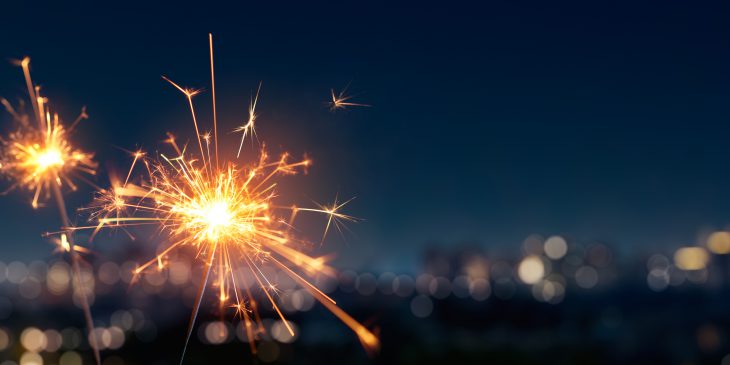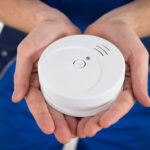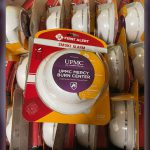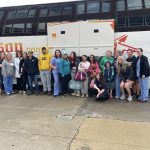Summer celebrations will take place under completely unprecedented conditions this year, with the COVID-19 pandemic moving many local officials to cancel July 4th fireworks displays. Some fireworks are now legal in Pennsylvania — though local municipalities have their own ordinances governing their use — and consumers are purchasing their own in record numbers.
Personal fireworks usage complaints also are on the rise exponentially in many cities across the country, and UPMC Mercy Burn Center officials expect an increase in the number of injuries throughout western Pennsylvania.
“The 4th of July holiday is a time when we see serious fireworks injuries every year. These completely preventable injuries include loss of vision or limbs, specifically fingers and hands,” said Jenny Ziembicki, M.D., medical director, UPMC Mercy Burn Center. “While public displays have been cancelled, we urge our neighbors to not engage in personal fireworks use to avoid any of these devastating traumas.”
The UPMC Mercy Trauma and Burn Centers offer these safety tips:
Firework Safety
– Though they may be popular with kids, sparklers are dangerous, and they are not toys. While they look harmless, they reach temperatures as high as 2,000 degrees — the same as a blow torch. A temperature this high easily burns skin and can create permanent, devastating injuries.
– Teach your children that fireworks are explosive devices that should not be touched. Kids should get an adult if they find an unspent firework. The adult should then notify the local fire or police department. Fireworks injuries can result in blindness, scarring and amputations of fingers and hands.
– It’s just too dangerous to be around fireworks. If you are around someone who wants to use fireworks, leave the area.
What to do if you are injured:
– Immediately stop the burning process with clean, cool (not cold) water; remove any clothing, diapers or jewelry around the injured area; and wrap with a clean, dry towel. Do not use ice or apply any ointments.
– Seek medical attention immediately. UPMC’s emergency departments stand ready to care for anyone who needs attention. If you are having a medical emergency, come to the hospital. Our hospitals are safe, and we are ready to care for you.
Visit the American Burn Association website for additional outdoor burn safety dos and don’ts.
Gasoline
Flammable liquid fires result in an estimated 454 civilian deaths, 3,910 injuries, and $1.5 billion in direct property damage per year, according to the National Fire Protection Association. Gasoline is an extremely flammable liquid and vapor — the fumes are capable of ignition up to 12 feet from a pooled source.
Do:
– Use gasoline outdoors only, and store it in cool, well-ventilated areas.
– Start charcoal grills only with fluid labeled “charcoal starter fluid.”
– Keep gasoline locked up and out of reach of children.
– Use containers that have been listed, labeled or approved for gasoline.
– Fill gas-powered equipment when engines are cool.
Do not:
– Siphon gasoline by mouth.
– Use gasoline near a flame source, such as burning leaves or brush.
– Induce vomiting if gasoline is swallowed.
– Use gasoline as a cleaning fluid or solvent.
– Store gasoline in the house.
– Dispense gasoline into a portable container while it is located inside the vehicle or truck bed.
Campfires
Seventy percent of campfire burns are caused by embers rather than flames, and fire pits can retain heat hot enough to cause a severe burn up to 12 hours after being extinguished.
Humans cause nine of every ten wildfires. Make sure campfires are permitted in the area you are in.
Do:
– Build your fire at least 15 feet away from your tent, preferably downwind.
– Keep children at a safe distance with a “circle of safety” at least 4 feet from the fire edge.
– Have a small, manageable fire.
– Make sure you have water available before building the fire in case of emergency.
– Talk to children about campfire safety.
Do not:
– Leave a fire unattended under any circumstances.
– Use an accelerant, such as gasoline, to start a fire.
– Throw anything other than wood into the fire.
– Build a fire if conditions are dry or forest fire danger is high.
– Bury a campfire to extinguish it; always use water.
– Assume the fire pit is safe when arriving at a campsite. Coals from previous campers may still be hot.
If you are burned…
Do:
– Stop the burning process immediately by rinsing with cool, clean water.
– Wrap the burned area with a dry, clean towel.
– Seek medical attention immediately.
Do not:
– Use butter on burns.
– Break blisters.
– Put ice on a burn.
– Apply ointments to a severe burn.
For more information, please call the UPMC Mercy Trauma Services at 412-232-8375.









